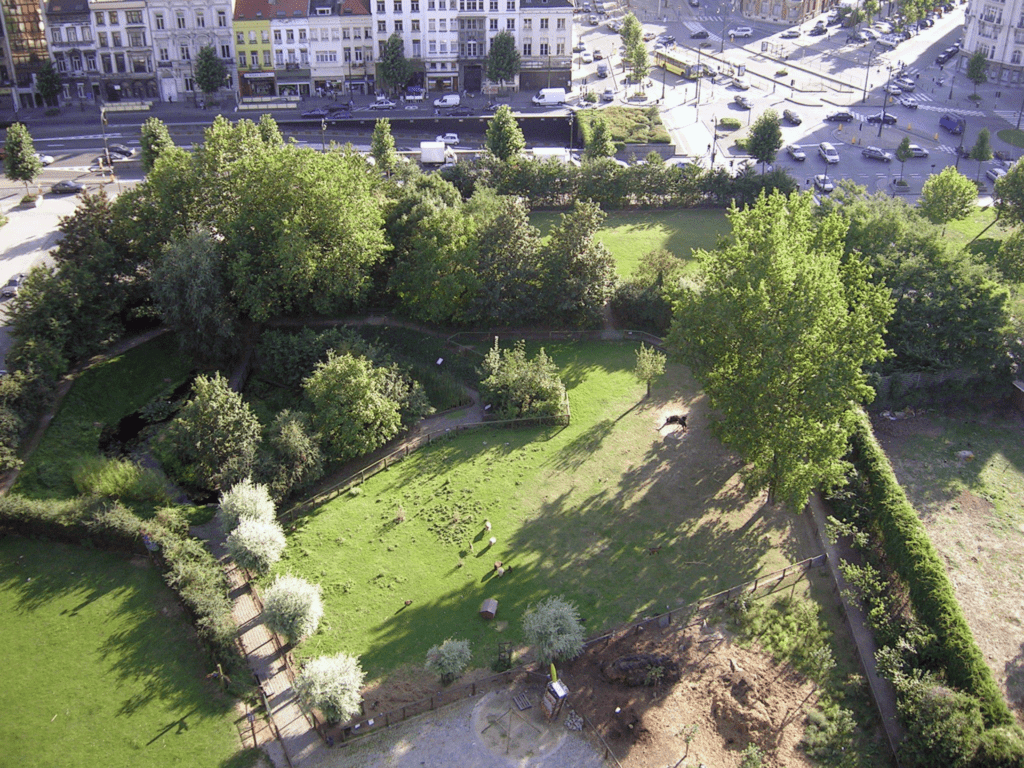As Brussels residents awaken to a need for more green space in the capital, cars - and the space they take up - could be facing an uncertain future in post-Covid plans for the city.
This last year has presented the capital with a unique opportunity to solve existing issues and focus more on the living standard of its citizens, according to State Secretary for Urban Development Pascal Smet.
“This crisis has shown that people in a city need spaces where there are no cars, and where people previously were really opposed to making squares car-free, they now agree that there should be open space in cities,” Smet told The Brussels Times.
Related News
- More companies choose electric when offering employees cars
- Brussels will get smart lampposts
- Brussels Jazz Weekend to be held on balconies this year
To the detriment of open spaces, "Brussels is notoriously densely built-up, so adding new ones is more challenging, but this can be resolved by converting existing spaces, including squares and outdoor car parks," Smet explained.
Converting stone surfaces involves softening the ground so rainwater can naturally seep into the soil, allowing the planting of trees and bushes, in turn preventing overheating the soil.
This process is only possible in places without much underground activity (i.e. metro lines or sewage systems), such as Place Fernand Cocq and Saint-Gilles' Place Marie Janson, for which Smet recently approved plans for a multifunctional park, involving making it greener, as well as minimising traffic.
"Above all, we want to take away space from cars across the city, which means more squares on street corners, but also being more creative by making large roundabouts smaller and creating green, more pedestrianised spaces in the place,” he added.
Smet emphasised that the importance of existing elements has also been confirmed in the previous year. "People in a city need public space where they can sit on a bench distanced from others, where the pavements are sufficiently wide, and where there are plenty of bicycle lanes," he said.
Leaving Space For Cars
The trend of creating open space and pedestrianising cities has occurred across the globe, and many local authorities are striving to make cities more liveable, according to Stef Willems, spokesperson of Vias.
While Willems welcomes these plans in principle, he highlighted that infrastructure changes must ensure the city remains accessible for those who need to drive, while those who can avoid relying on a car for transport should be given adequate car-free options across the city.
In addition, people should be encouraged to think twice about what mode of transport they rely on. "This means there would be fewer traffic jams for people who have to travel by car, but it would also be beneficial for traffic safety, whilst making the city more liveable by decreasing pollution and noise," he said.
Vias' figures also showed that "the use of regular bikes and electric bikes doubled in 2020 compared to 2019," and Willems hopes that people who have switched to cycling will continue to do so. "Making biking in a city easier and safer will help with that," he said.
Green space within hand's reach
Aside from giving public space back to the city's population, Smet is also including regulations on private outdoor spaces next to new-builds in his plans.
“People need outdoor space right next to where they live in the city. That means that when a new flat is constructed, it should have a balcony or terrace. Although this should always be feasible, where it is not, the roofs of buildings should become communal so that people can turn them into rooftop gardens," said Smet.
To further develop this ‘Good Living policy’, Smet will work with a committee of people from the academic, public, and architectural sectors, and once the draft proposal is finalised, it will go to the public for feedback.
“This means that these new regulations, which will determine space in Brussels over the next few years, could be approved by 2023,” Smet said.
Lauren Walker
The Brussels Times

